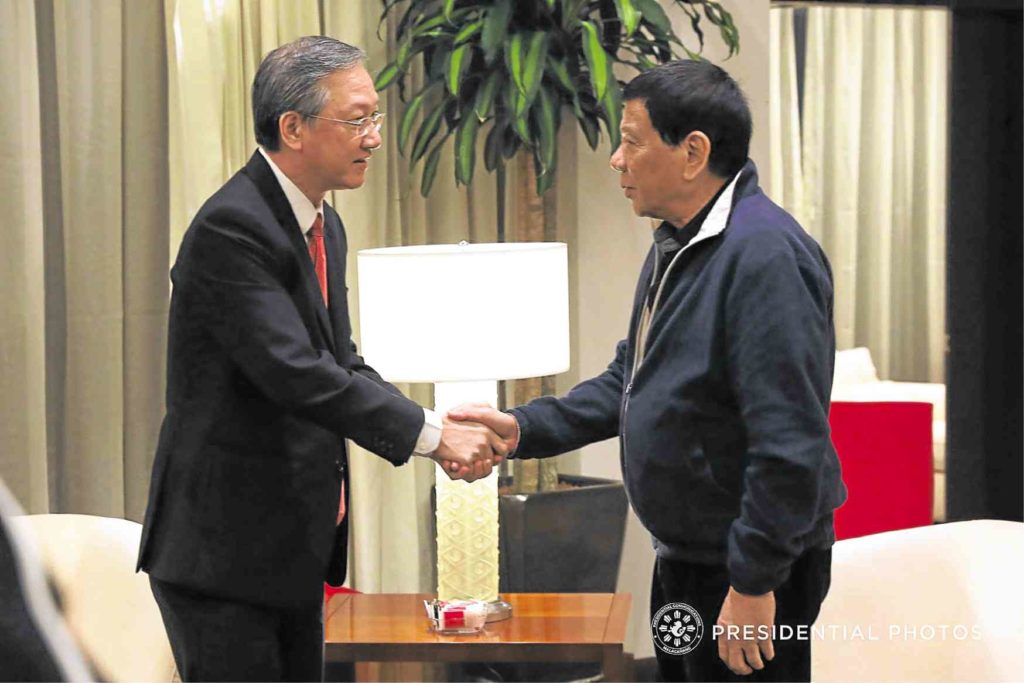
Arriving for the Asean Summit on Thursday, President Duterte is welcomed by Singapore Minister of State Sam Tan Chin Siong at Changi International Airport in Singapore. —MALACAÑANG PHOTO
SINGAPORE—Palace officials will now allow foreign correspondents based in Manila and accredited by Malacañang to attend a press conference of presidential spokesperson Harry Roque on Friday after the Foreign Correspondents Association of the Philippines (Focap) protested against the exclusion of some of its members from a briefing by Labor Secretary Silvestre Bello III.
Presidential Communications Operations Office (PCOO) Assistant Secretary Queenie Rodulfo said she was not informed about what had happened during Bello’s press briefing in Singapore, where labor and foreign affairs officials joined President Duterte’s party for the 32nd summit of the Association of Southeast Asian Nations (Asean).
In a statement on Friday, Focap said it was “deeply alarmed by the Philippine government’s strong actions that clearly violate constitutional provisions on freedom of information.”
It said some Focap members were prevented from covering Bello’s news conference earlier on Friday. A day earlier, Focap members were also blocked from Foreign Secretary Alan Peter Cayetano’s press briefing. They were later allowed access but barred from asking questions.
‘Not isolated’
The group was referring to journalists from Reuters TV and Japan’s Kyodo News Service.
Reuters recently was awarded the Pulitzer Prize for international reporting for its coverage of Mr. Duterte’s brutal war on drugs.
“These incidents are not isolated. We note the earlier restrictions on press movements during coverage of the war in the southern city of Marawi and those who reported on the closure of the island resort of Boracay,” Focap said.
“We are also alarmed at reports that the House of Representatives has passed a rule threatening to revoke media accreditation of those whose reports ‘besmirch the reputation’ of the body. The rules give a wide latitude for interpretation and can be used to clamp down on the critical press,” it added.
‘Curtailment of rights’
As a professional group “founded at the height of the repressive regime of dictator Ferdinand Marcos in the 1970s,” Focap said it viewed the government actions as “curtailment of our rights as a free press mandated by the Philippine Constitution.”
Asked for her reaction, Rodulfo clarified that she handled the content unit of the PCOO and not media relations.
“I don’t have direct access also on the schedule to be given/open to media. Hope this clarifies the matter,” she said.